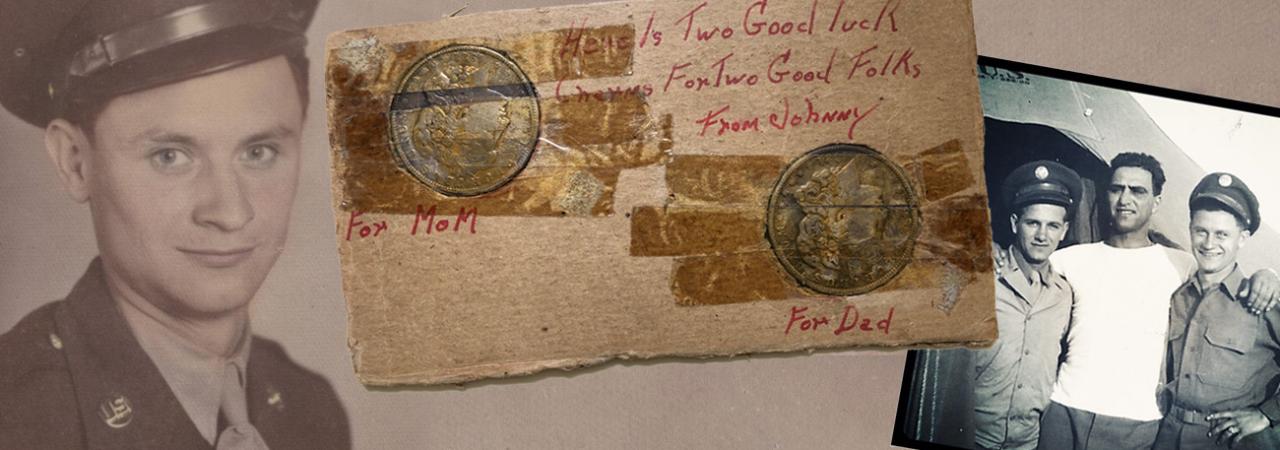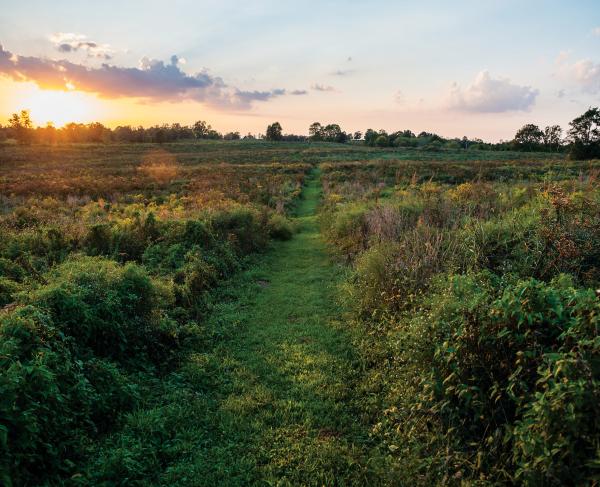Thinking of Dad on Memorial Day

I think about my father a lot in this job. He was a WWII veteran and a part of the Greatest Generation. At the same time, he was an average "John" (his real name) with the challenges of growing up in the Great Depression, son of immigrant Polish parents. He didn't graduate high school, leaving at 16 so that he could work to support the family. Soon thereafter, he was off to Roosevelt's Civilian Conservation Corps building roads in Idaho, and then Europe to fight in the 95th Infantry Division in Patton's Third Army.
Whenever I visit a battlefield and confront its terrain and history, I wonder, "What was it like for Dad in Metz?" I asked the question on occasion but he wasn't of a generation that discussed it much—and I didn't press the issue not wanting to cause him pain. Now, I do wish I had pressed a little more so I could tell his stories.
Still, I think he would have said that they weren't his stories to tell. Just as each of our three medal of honor recipients said in their powerful video testimony as they walked Civil War battlefields: the medals didn't belong to them, but to all the men that were there with them. I believe my father thought those stories belonged to the men who experienced it with him, and they left the Earth with him in 1996.
Now, it is Memorial Day and my thoughts again turn to Dad as I ponder ways to appropriately recognize the unfathomable commitment and sacrifice made by people on behalf of their country. And again my worlds collide as I recall one of the most powerful sermons I have ever read.
Rabbi Roland B. Gittelsohn (1910-1995), of the Fifth Marine Division, who was the first Jewish chaplain the Marine Corps ever appointed, delivered the sermon at the end of the battle for Iwo Jima in WWII. His sermon, almost never delivered because of prejudice—read about that story here—says everything my heart wants to say this day, to you, and to my Dad. I leave you with it here:
"Here lie men who loved America because their ancestors generations ago helped in her founding, and other men who loved her with equal passion because they themselves or their own fathers escaped from oppression to her blessed shores. Here lie officers and men, Negroes and whites, rich men and poor . . . together. Here are Protestants, Catholics, and Jews together. Here no man prefers another because of his faith or despises him because of his color. Here there are no quotas of how many from each group are admitted or allowed. Among these men, there is no discrimination. No prejudices. No hatred. Theirs is the highest and purest democracy…
Whosoever of us lifts his hand in hate against a brother, or who thinks himself superior to those who happen to be in the minority, makes of this ceremony and the bloody sacrifice it commemorates, an empty, hollow mockery. To this, then, as our solemn duty, sacred duty do we the living now dedicate ourselves: to the right of Protestants, Catholics, and Jews, of white men and Negroes alike, to enjoy the democracy for which all of them have here paid the price...
We here solemnly swear that this shall not be in vain. Out of this and from the suffering and sorrow of those who mourn this will come, we promise, the birth of a new freedom for the sons of men everywhere."
Thank you, Dad.
Lawrence Swiader
Director of Digital Strategy


